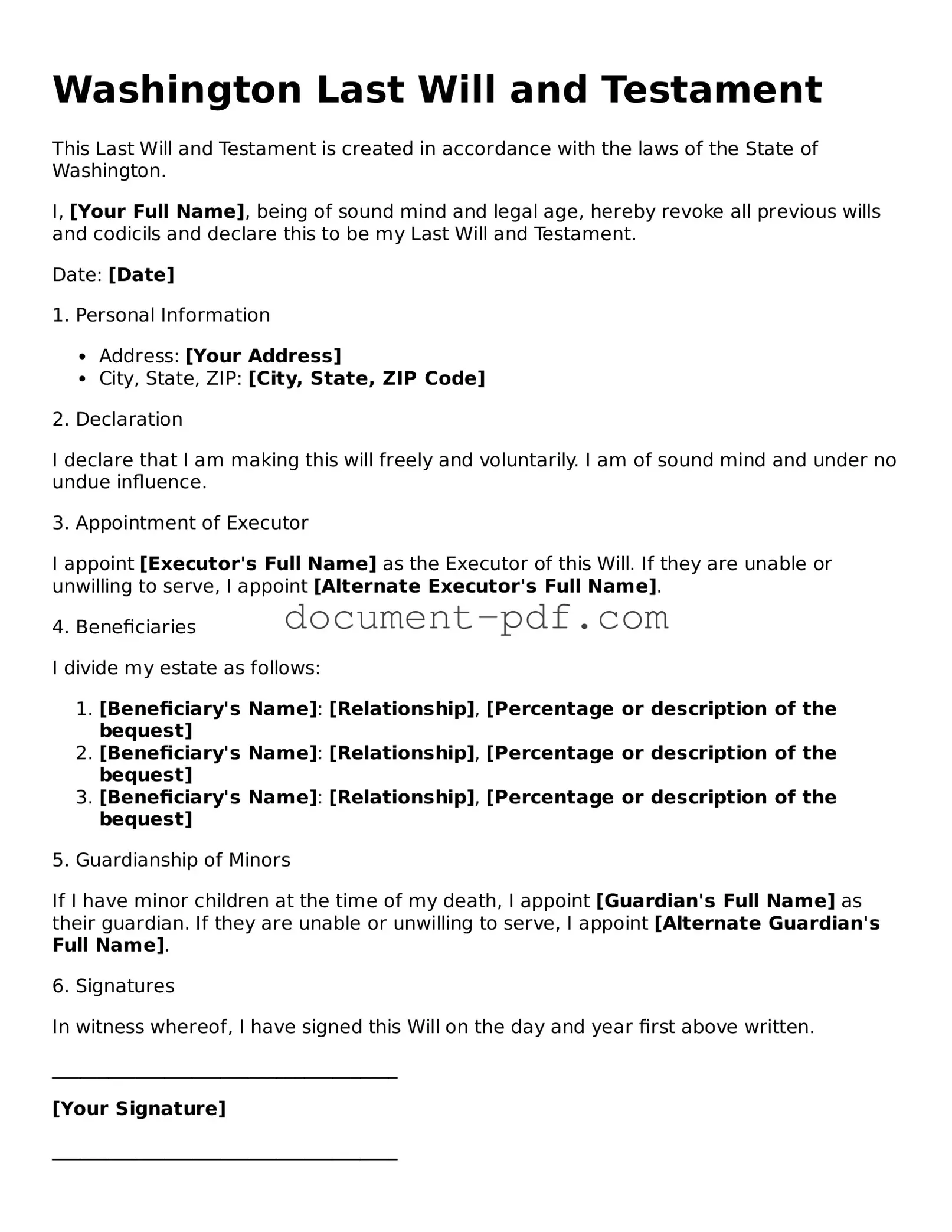Attorney-Verified Washington Last Will and Testament Template
A Washington Last Will and Testament form is a legal document that outlines how a person's assets and affairs will be handled after their death. It allows individuals to specify their wishes regarding the distribution of their property and the care of any dependents. Understanding this form is essential for ensuring that your intentions are honored, so consider filling out the form by clicking the button below.
Access Last Will and Testament Editor Here

Attorney-Verified Washington Last Will and Testament Template
Access Last Will and Testament Editor Here
Finish the form without slowing down
Edit your Last Will and Testament online and download the finished file.
Access Last Will and Testament Editor Here
or
Click for PDF Form
